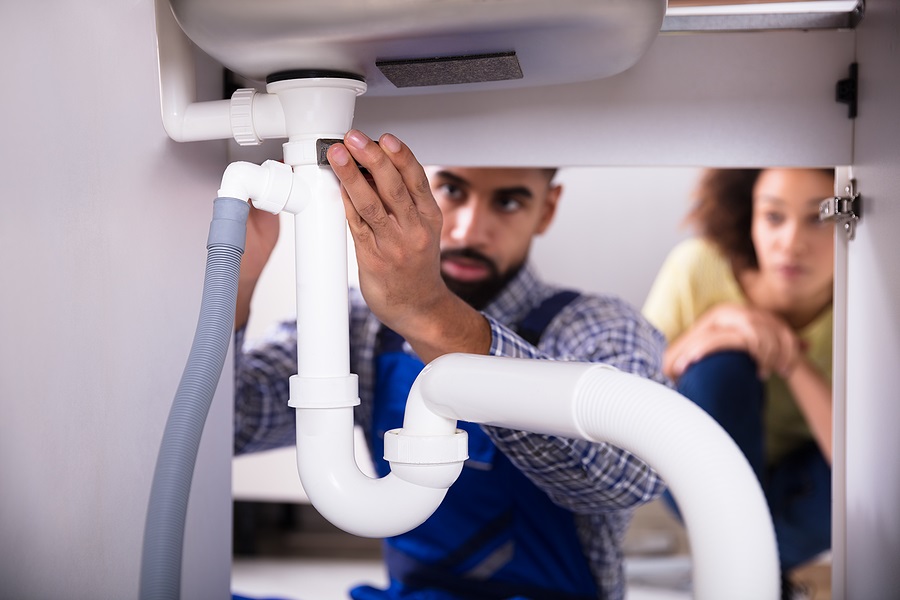
Maintaining a home’s plumbing system is often overlooked until a problem arises. However, just like regular health check-ups, scheduling a yearly inspection and consultation with your plumber can prevent minor issues from becoming major disasters. In this article, we’ll explore the numerous benefits of an annual plumbing inspection, including how it can help with leak prevention, early leak detection, and overall home maintenance:-
1. Early Detection of Potential Problems
One of the most significant benefits of an annual plumbing inspection is the early detection of potential issues. During a visual check, a professional plumber can spot signs of wear and tear, such as corrosion on pipes, loose fittings, or small leaks that could lead to bigger problems if left unaddressed.
- Prevention of Major Water Damage: Catching a small leak early can prevent it from turning into a major water damage issue, saving you from costly repairs.
- Avoidance of Emergency Situations: Regular inspections reduce the likelihood of plumbing emergencies, such as burst pipes or severe leaks, which can be both stressful and expensive to fix.
2. Improved Water Efficiency
A yearly plumbing inspection can also help you identify ways to improve your home’s water efficiency. Your plumber can check for any leaks that might be wasting water and suggest upgrades to more efficient fixtures.
- Detection of Hidden Leaks: Even small, hidden waste a lot of water over time. By identifying and fixing these leaks, it will improve the pressure and it’s also good for the environment.
- Advice on Water-Saving Upgrades: Your plumber can recommend water-saving fixtures, such as low-flow toilets or taps, which not only reduce water usage but will also help you save on your electricity bill if you have your own well.
3. Enhanced Longevity of Your Plumbing System
Regular inspections contribute to the longevity of your plumbing system by ensuring that everything is in good working order. This proactive approach means that parts are replaced or repaired before they fail, extending the lifespan of your plumbing system.
- Prevention of Premature Wear and Tear: By maintaining your plumbing system through regular check-ups, you prevent the premature breakdown of pipes and fixtures.
- Increased Value of Your Home: A well-maintained plumbing system can increase the value of your home, as potential buyers will appreciate the reduced likelihood of future plumbing issues.
4. Professional Leak Prevention and Detection
During your yearly consultation, a plumber can provide expert advice on how to prevent leaks and the best methods for detecting them early. This consultation can include:
- Installation of Leak Detection Devices: Your plumber can suggest and install smart leak detection devices that alert you to any unusual water usage, helping you catch leaks early.
- Guidance on Proper Maintenance Practices: Learn the best practices for maintaining your plumbing system, such as how to check that pipes are properly insulated, how often to inspect seals and joints and how to check that attic heaters for frost protection are in good working order.
5. Knowing the Location of Your Main Water Inlet Valve
A crucial part of plumbing safety that is often overlooked is knowing how to turn off your home’s main water supply. Both you and your plumber should have a clear record of where this valve is located.
- Quick Response in Emergencies: In the event of a major leak or burst pipe, being able to quickly turn off the main water supply can prevent extensive water damage. Your plumber can guide you through the process over the phone if needed, but knowing its location ahead of time is key.
- Avoiding Panic: Homeowners who are familiar with the location of the main water supply and how to turn it off are better prepared to act swiftly in an emergency, reducing the risk of severe damage to the home.
Additionally, during your yearly inspection, discuss with your plumber the option of turning off the main water supply when you’re away on holiday.
- Preventing Damage While Away: Shutting off the main water supply while you’re on holiday is a simple step that can prevent potential leaks or flooding while your home is unattended. Your plumber can show you how to do this properly and advise on any additional steps to ensure your plumbing system remains safe while you’re away.
During your inspection, ask your plumber to review the location of the valve with you, and if necessary, label it clearly so that it’s easy to find in a hurry. Consider placing a diagram or note near the valve location for quick reference.
6. Peace of Mind
Perhaps one of the most valuable benefits of a yearly plumbing inspection is the peace of mind it provides. Knowing that a professional has thoroughly inspected your plumbing system and that everything is in good shape allows you to rest easy, without the constant worry of unexpected plumbing issues.
- Confidence in Your Home’s Integrity: Regular inspections ensure that your plumbing system is functioning optimally, reducing the likelihood of unexpected breakdowns.
- Continuous Support and Advice: Establishing a relationship with your plumber through yearly inspections means you always have a trusted professional to turn to with any questions or concerns.
Conclusion
A yearly plumbing inspection offers numerous benefits, from early leak detection and prevention to improved water efficiency, knowledge of your main water valve location, and peace of mind. By investing in regular check-ups, you can save money, extend the life of your plumbing system, and avoid the stress of unexpected emergencies. Schedule your annual plumbing inspection today to ensure your home’s plumbing system remains in top condition year-round.
If you’re looking for someone to carry out an annual inspection, don’t forget, you can post your job on www.Tradesmen.ie and get a number of quotes from rated plumbers!
Cheers
Oliver Dempsey
Tradesmen.ie
13 August 2024
General Tips for hiring a tradesman
Here are some tips to consider when hiring a tradesman:-
1. Ask for phone numbers of references so that you can check them out
2. Check insurance of the tradesman where insurance is required
3. Hire a suitably qualified architect, building surveyor or building engineer if the job is anything to do with a new build, building renovation or extension






